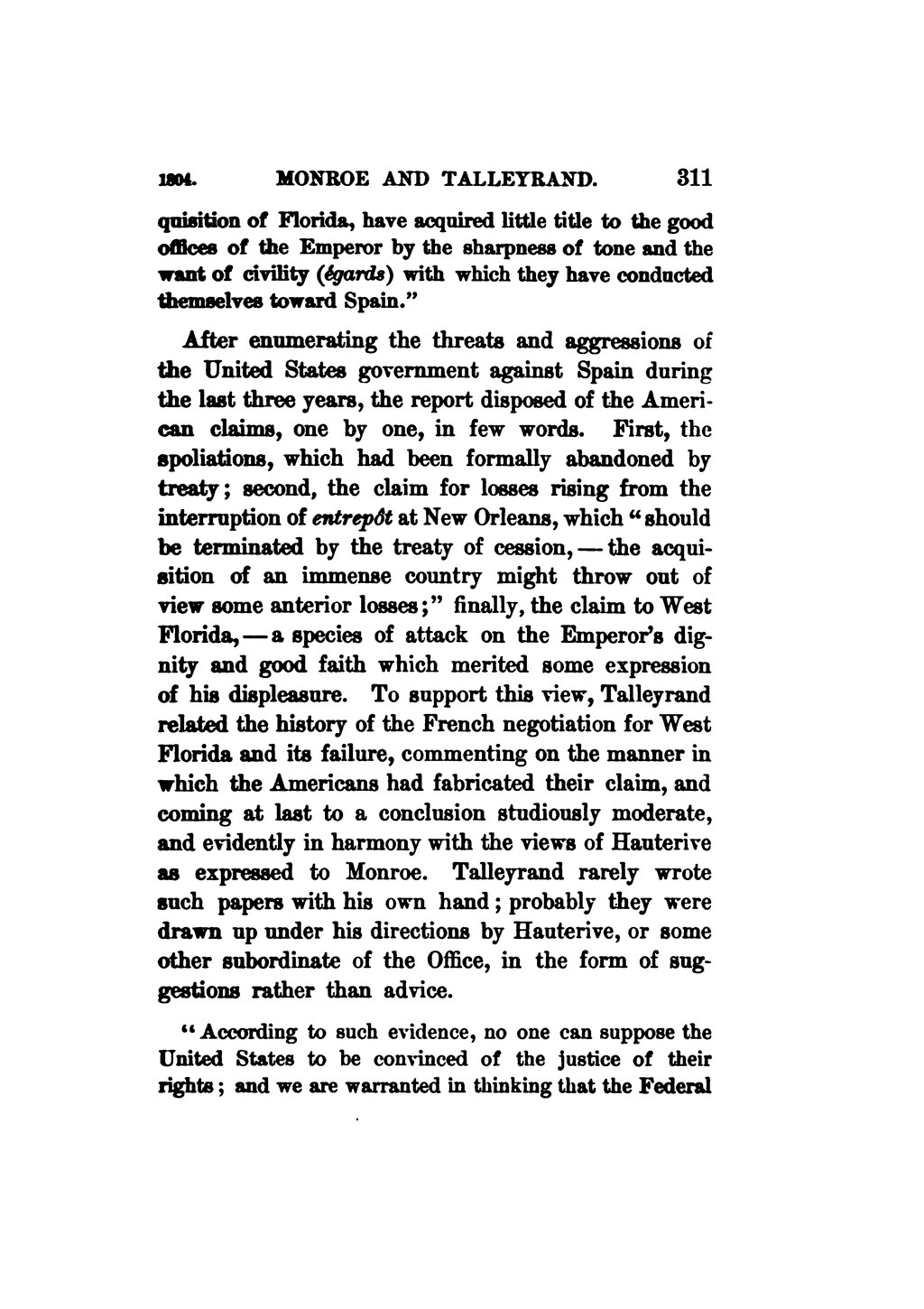of Florida, have acquired little title to the good offices of the Emperor by the sharpness of tone and the want of civility (égards) with which they have conducted themselves toward Spain."
After enumerating the threats and agressions of the United States government against Spain during the last three years, the report disposed of the American claims, one by one, in few words. First, the spoliations, which had been formally abandoned by treaty; second, the claim for losses rising from the interruption of entrepôt at New Orleans, which "should be terminated by the treaty of cession,—the acquisition of an immense country might throw out of view some anterior losses;" finally, the claim to West Florida,—a species of attack on the Emperor's dignity and good faith which merited some expression of his displeasure. To support this view, Talleyrand related the history of the French negotiation for West Florida and its failure, commenting on the manner in which the Americans had fabricated their claim, and coming at last to a conclusion studiously moderate, and evidently in harmony with the views of Hauterive as expressed to Monroe. Talleyrand rarely wrote such papers with his own hand; probably they were drawn up under his directions by Hauterive, or some other subordinate of the Office, in the form of suggestions rather than advice.
- "According to such evidence, no one can suppose the United States to be convinced of the justice of their rights; and we are warranted in thinking that the Federal
